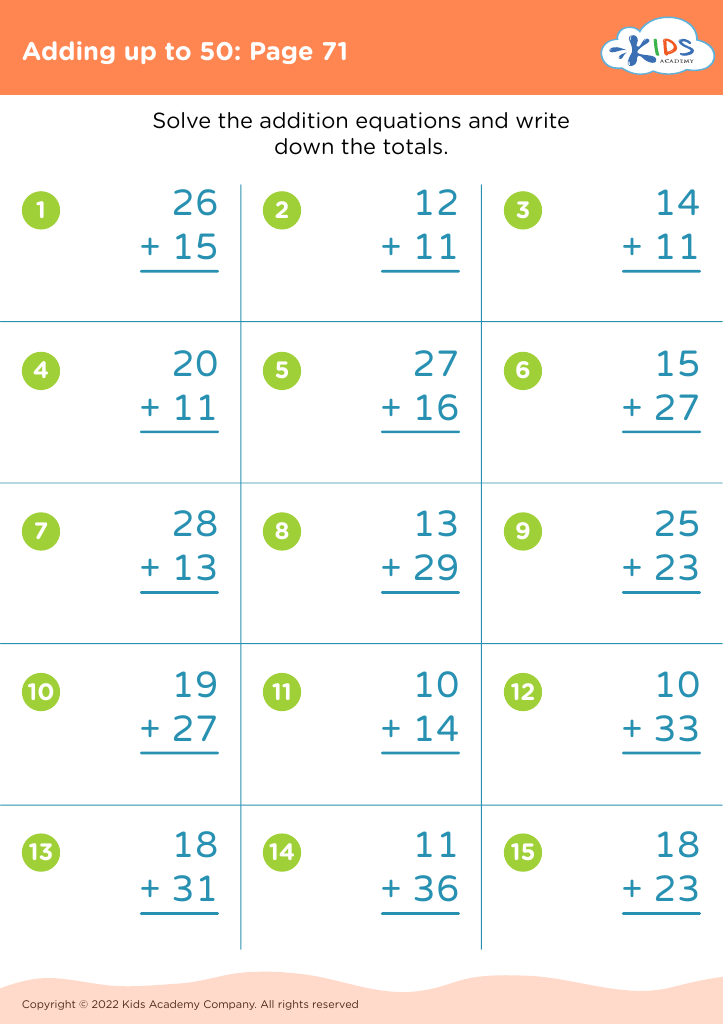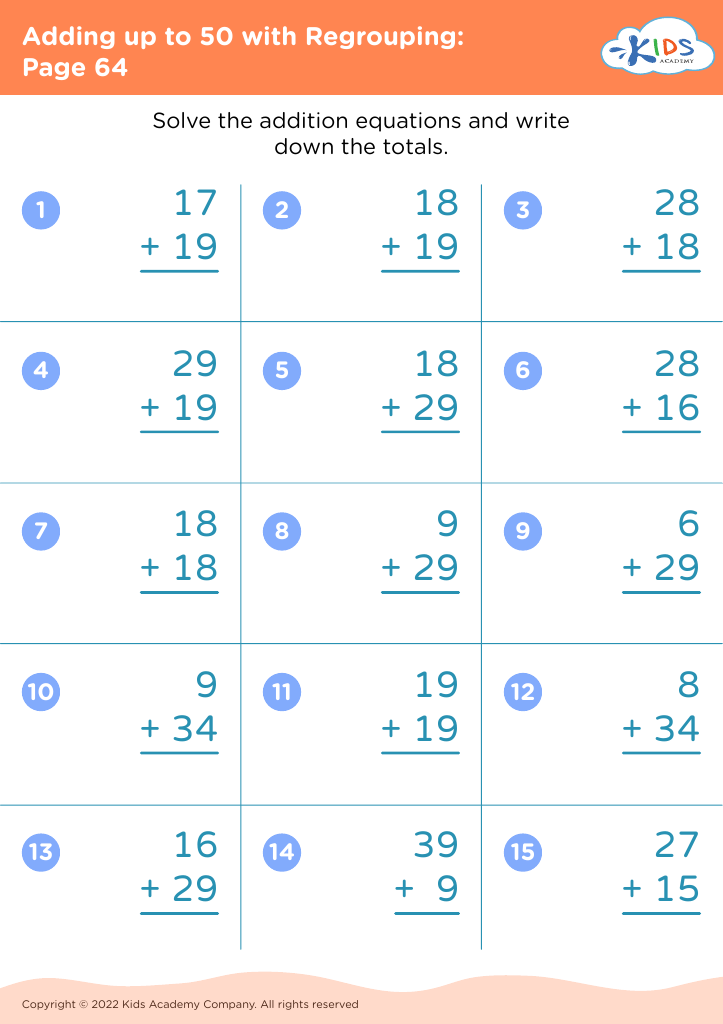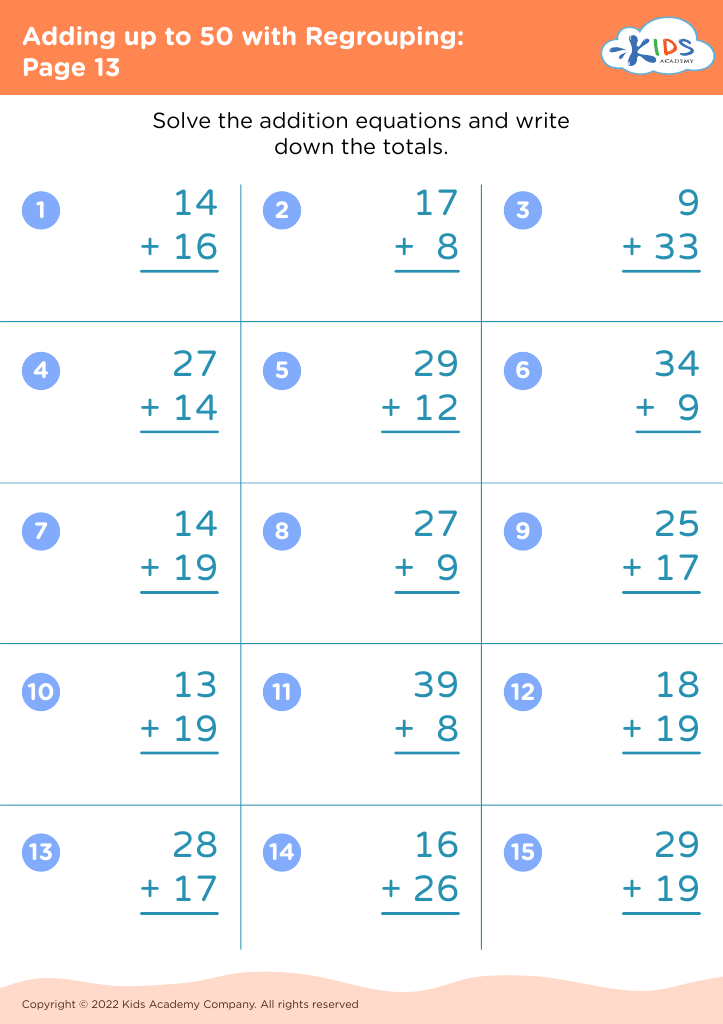Cognitive Development Adding up to 50 Worksheets for Ages 5-7
4 filtered results
-
From - To
Enhance your child's cognitive development with our "Adding Up to 50 Worksheets" designed specifically for ages 5-7. These engaging, educational worksheets help young learners build foundational math skills through fun exercises focused on addition techniques. As children work through various levels of difficulty, they're not only practicing their math abilities but also improving problem-solving, critical thinking, and concentration skills. Our worksheets encourage hands-on learning, allowing kids to explore numbers in a playful yet structured environment. Ideal for parents and teachers alike, these resources will foster a love for learning and prepare children for future academic success. Start boosting your child's cognitive growth today!
Cognitive development is a crucial aspect of a child's growth, particularly for ages 5 to 7. During this period, children are refining their thinking, reasoning, and problem-solving skills. For parents and teachers, understanding cognitive development at this stage is essential for several reasons.
Firstly, recognizing the cultural and individual differences in cognitive growth helps tailor educational approaches to suit each child’s needs, fostering an inclusive atmosphere where all children can thrive. By being aware of cognitive milestones, adults can provide appropriate challenges that encourage learning and curiosity.
Secondly, promoting activities that enhance cognitive skills—like games that involve counting and basic math—supports children in mastering foundational concepts. For instance, focusing on activities that require children to "add up to 50" encourages them to engage with numbers effectively, strengthening their computational skills and confidence.
Lastly, early interventions in cognitive development can significantly impact a child's academic success. Engaged parents and teachers can equip children with the necessary tools to develop critical thinking and intelligence. Overall, investing in cognitive growth sets the stage for happy, successful adults, emphasizing the importance of this developmental stage.




















